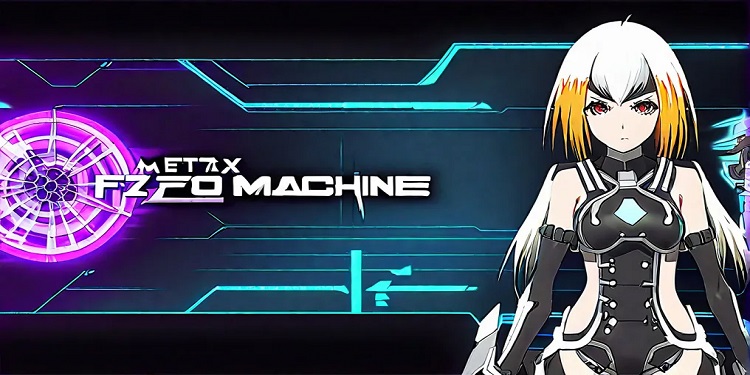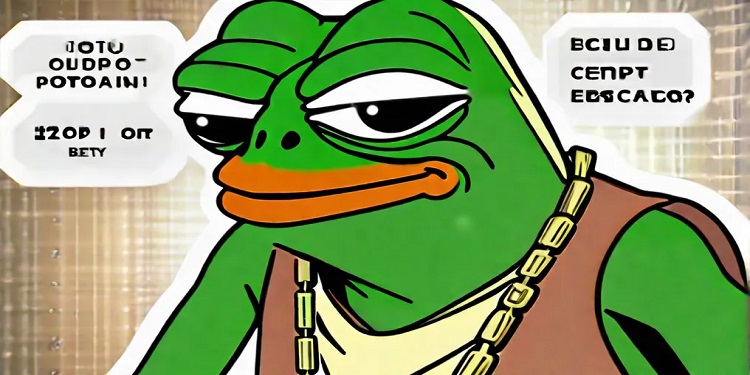
To create a decentralized payment system, to give people monetary freedom

$0.0 0.0%
$235,622,254,038
Pros & Cons
- Widely accepted as a payment method
- Anonymous way of making payments
- Safe and secure
- Low transaction fees
- Decentralized and unregulated
- Too volatile and unpredictable
- Can be used for criminal activities
- May be replaced by better digital currencies
- Refunds and chargebacks are not available
- Private keys can be stolen
- Bitcoin exchanges are prone to attacks
Features
- Digital currency that works like physical cash
- Bitcoin transactions require no permission
- Offers privacy and anonymity
- Decentralized
Bitcoin Info
- Founded
- 2008
- Ownership
- Open source software
- GitHub Last Updated
- 10 Jan 2018
- Contributors
- 500
Bitcoin Overview
Bitcoin is the world’s first cryptocurrency, a variety of virtual currency that is not controlled or regulated by anyone. It is digital currency that is created on computers through the use of software involving complex mathematical problems. Today, one can purchase products and services using bitcoins, just as one uses Euros, Pounds, and Dollars.
Bitcoin is attractive to most of its users because of its decentralized nature. Nobody is in control of the bitcoin network, a fact that makes many people feel comfortable because it means that their money is not controlled by any bank or financial institution.
Who Founded Bitcoin?
Satoshi Nakamoto is believed to be the group or individual who founded the cryptocurrency in 2008. Nakamoto’s research paper titled “Bitcoin: A Peer-to-Peer Electronic Cash System” was the first of its kind on cryptocurrency. However, he stopped working on the bitcoin network after 2010 stating that he has “moved on to other things” and that the network “is in good hands with Gavin and everyone.”
Is Satoshi is the real founder of the cryptocurrency? One cannot say for sure because too many people have claimed to have created Bitcoin.
- Leah McGrath Goodman mentioned a resident of California called Dorian Nakamoto in a Newsweek article and claimed that he had found the true founder of the cryptocurrency. Although Dorian Nakamoto initially admitted to have founded Bitcoin, he later denied having had anything to do with it.
- Andy Greenberg, who writes for Forbes, mentioned Hall Finney who lived a short distance from Dorian Nakamoto. According to Greenberg, Finney worked for Nakamoto. Later, he showed the journalist the emails he had sent to and received from Nakamoto.
- Wired published a report claiming that it was Craig Steven Wright of Australia who created Bitcoin. Later, Wright posted on his blog that he had nothing to do with the creation of Bitcoin.
So, nobody knows the identity of the creator of this cryptocurrency. One can only hope that the future will reveal the identity of the man who created Bitcoin and now owns 1.5 million bitcoins stored in multiple bitcoin wallets.
Reasons to Use Bitcoin
The number of bitcoin users is on the rise, and here are a few good reasons for this development:
Speedy Transactions: Bitcoin transactions are super fast chiefly because the digital currency is not controlled by any bank. The transactions take about 10 minutes if the merchants demand confirmation; otherwise they are instantaneous.
Cheap: Those who use credit/debit cards will have to pay transaction fees to their bank or credit card issuing company. In case of bitcoin, the transaction fees are either minimal or totally absent.
Decentralized Currency: Since Bitcoin is not controlled by any bank or financial institution, it belongs to the person who is using Bitcoin. Banks can take away their customers’ money anytime, but this can never happen in case of bitcoin. The cryptocurrency is, therefore, ideal for those who do not trust banks.
No Chargeback: You cannot retrieve bitcoins that have already been used to make a payment. In other words, you cannot reverse a bitcoin transaction, a fact that greatly minimizes fraud.
Safe and Secure: If a customer wants to pay through credit card, he/she will have to reveal a great deal of card information. Many customers don’t like to reveal their card information as they feel that it can be unsafe. In many cases, credit card information ends up getting stolen.
This can never happen in case of Bitcoin because all bitcoin transactions require two keys—a public key that is visible to everybody and a private key that is visible only to the bitcoin user. As long as bitcoin users keep their private key really “private” and don’t reveal it to anybody, their bitcoin transaction will be safe and secure.
No Inflation: Bitcoin is not like fiat currency, which can be created according to the government’s will and injected into the economy, leading to inflation. On the other hand, it is designed in such a way that only 21 million bitcoins can be created. In the world of bitcoin, therefore, there will never be any inflation.
Anonymous: Bitcoin users can make purchases anonymous. At the same time, the blockchain technology, which powers bitcoin, is absolutely transparent. Although nobody knows the identity of the person behind a bitcoin address, everybody can see exactly how many bitcoins he/she has and get hold of all the transaction details.
Trust Factor is Unnecessary: While using bitcoin, one doesn’t have to trust anybody. Bitcoin transactions are digital signed, which makes them secure. Each transaction will be verified by unknown miners, after which they are completed. Merchants don’t have to know the customers’ identity.
You are the Sole Owner: Your bitcoin wallet belongs only to you and to nobody else. So nobody can freeze it and deny you access. You are the sole owner of the public as well as private key that comprises your bitcoin address.
You Can Create Bitcoins: You can get hold of bitcoins by either purchasing them or mining them. However, you need a lot of electricity and powerful computers to mine your own bitcoins.
How Bitcoin Works
Before trying to understand how Bitcoin works, one must understand that Bitcoin is nothing but a software program that is used to create a decentralized cryptocurrency.
The Technology: Bitcoin is powered by blockchain technology. A blockchain is a chain of chronologically arranged information blocks. Since the information blocks in case of Bitcoin is mostly information regarding bitcoin transactions, it resembles a ledger that is publicly available. It can be downloaded and perused at any time by anybody in the world.
Interestingly, nobody controls this “public ledger” or keeps an eye on this network. Instead, it is closely watched by everybody who is associated with it. To use Bitcoin, you don’t have to know anybody on the network or to trust anybody. As long as the software is functioning in perfect order, its cryptographic protocol makes sure that each information block is attached to the previous one to create a long chain that cannot be corrupted by any force.
This public ledger is maintained through a process called mining. The bitcoin network is made up of not only bitcoin traders, but also bitcoin miners who carefully record and verify each transaction on the blockchain. The chain never splits, and even if it does, in what is called a “fork,” the longer chain has more validity than the shorter chain.
Bitcoin miners are scattered all over the world and hardly know one another. They verify bitcoin transactions by creating a hash that appears in the next block. If any bitcoin user tries to alter a previous transaction, the hash changes in all the blocks and alerts the network. The fact that no individual can tamper with the blockchain without alerting the entire network makes Bitcoin safe and secure. Since generating hashes is so easy, the mining process needs something called “proof of work,” which involves creating a hash that is a value less than the current target.
Using Bitcoin: The average bitcoin user, however, doesn’t really need to understand all the above in order to use Bitcoin. They simply need to understand wallets and keys. To become a bitcoin owner, one requires a public key, which is something like a username, and a private key, which is something like a password. If you want to receive bitcoins from someone, you should give them your public key, which is also referred to as bitcoin address. If you want to send bitcoins to someone, you will have to use your private key as well. This means that you can easily receive bitcoins, but need to verify your identity by using your private key in order to send bitcoins.
You also need to get a bitcoin wallet in order to use bitcoin. There are two types of bitcoin wallets—hot wallets that are completely online and cold wallets that are offline. You can easily set up a bitcoin wallet at Coinbase, which also serves as a bitcoin exchange where you can buy and sell bitcoins. Bitcoin transactions are processed through gateways such as GoCoin and BitPay.
Transaction Fees: Usually, Bitcoin is free to use, but one may have to pay nominal fees to the servers that support the bitcoin mining network, the mining pool they have joined, and the exchange that converts bitcoins into fiat currency and vice versa. Server owners charge nominal transaction fees whenever bitcoins are sent across their servers and bitcoin mining pools will request nominal support fees from those who join the pool. But these fees are much smaller than the transaction fees charged by banks, financial institutions, and credit card companies.
Bitcoin Value
The value of one bitcoin changes with every passing moment. Those interested can find out the latest value of Bitcoin at places such as Coindesk. An Express report of December 2017 quotes Nicholas Gregory, CEO of CommerceBlock, as having said that 16 million bitcoins have already been mined and are currently in existence. The bitcoin software has been designed to stop the further creation of bitcoins once there are 21 million of them in existence. This is believed to happen somewhere in 2040.
Early in April 2013, bitcoin prices fell to $50 from $266 before recovering to $100. In June 2013, the price dropped to $70. Although it fell to $110 when the FBI seized the Silk Road, it shot up to $200 a few weeks later.
So as one sees, bitcoin is a volatile currency. While its price fell by nearly $300 in March 2015, it shot up to $750 in June 2016. In January 2017, it fell by 30% only to reach a high of $1,242 in March 2017. On December 22, 2017, Bitcoin lost one-third of its value in just one day and plummeted to $14,000. The current value of Bitcoin is US$14,462. Experts say that its price will continue to rise in the following years, a fact that makes it great for investment.
Future of Bitcoin
Since the number of merchants choosing to accept payments through Bitcoin is on the rise, consumers can use bitcoins to purchase a variety of products and services. Still, consumers must remember that Bitcoin is still in the experimental stage and has a long way to go before it can achieve the status enjoyed by fiat currencies such as Dollar, Euro, and Pound.
Some experts feel that governments will adopt the blockchain technology in the near future and will alter their currencies to make them similar to bitcoins. But others feel that cryptocurrencies will continue to be used along with fiat currencies, but will not be invested in as much as precious metals such as gold.
Investors are advised to treat Bitcoin with caution and to invest in it only if they have money they don’t mind losing.
Where to Buy Bitcoin
You can purchase bitcoins in two ways. First, you can purchase them from people who use virtual marketplaces, just as you purchase any other service or product online. Second, you can visit cryptocurreny exchanges such as Bitstamp, Coinbase, Gatehub, and Kraken to purchase bitcoins. The biggest and most reputed of bitcoin exchanges are Coinbase.
To buy bitcoins, you also need to create a bitcoin wallet. You can choose from software wallets or hardware wallets. While software wallets are applications that can be connected with one’s bank account, hardware wallets resemble memory sticks.
If you are ready to purchase bitcoins, follow these steps:
Step #1: Create a bitcoin wallet by signing up at websites such as MyCelium, Exodus, Coinbase, and Blockchain.info.
Step #2: If you have opted for a software wallet, you will have to download the application at the Google Play Store or the Apple Store. You can also get bitcoin wallets designed for desktop use.
Step #3: Register accounts at bitcoin exchanges such as Poloniex, Coinbase, Bitfinex, Kraken, BitPanda, CEX.io, and BitStamp.
Step #4: The next step is to visit the Buy section of the exchange and input the number of bitcoins you wish to purchase. Since the current value of Bitcoin is high, you cannot purchase more than one Bitcoin at a time. You can use banking methods such as bank transfer or credit card to purchase as much as 0.5 bitcoin to as little 0.00000001.
Top 5 Bitcoin Wallets
Irrespective of whether one opts for hardware wallet or a software wallet, one must make sure that it allows users to control their own keys, has appropriate security and backup facilities, is easy to use and compatible with a variety of operating systems, and is home to an active community of developers.
I recommend the following five Bitcoin wallets:
Exodus: Created in the middle of 2015 by Daniel Castagnoli and J. P. Richardson, Exodus is a desktop wallet that can be used for free. You don’t have to verify your identity or register an account to use Exodus.
Jaxx: If you are in the habit of using multiple cryptocurrencies, I suggest that you use Jaxx. It comes with features such as seed key backup and shapeshift.io integration, which makes currency exchange easier. The wallet is available on iOS devices and Linus/MAC desktops.
Trezor: If you are looking for a hardware wallet, you could check out Trezor, produced by a Czech Republic company called SatoshiLabs. Trezor supports multiple currencies and is compatible with Android devices, Linux, and Windows.
CoPay: CoPay is a BitPay offering that is compatible with Windows Phone, Android, iOS, Windows, Linux, and Max OS X. It is easy to use and comes with a shared account feature.
MyCelium: MyCelium is the favourite bitcoin wallet for many users because it is a well-established and open source wallet with a wide range of security and privacy features. Since it is open source, it gets upgraded continuously. But it can be used only on mobile devices, not desktops.
Bitcoin Resources
Here is a list of resources that will help you stay updated on Bitcoin:
AuthorDavid Nugent
David is a forex trader and writer who has spent the last few years giving his opinion and spreading news about oncoming markets and trading tips. Besides from being a trader he is also a lifelong Everton fan and enjoys spending free time watching his beloved team in the premier league.


























